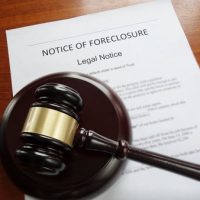Foreclosure Myths

The housing market has recovered over the past few years, but thousands of homeowners still struggle to pay their mortgage each month. When homeowners cannot make payments, the bank might start the foreclosure process.
At Nowack & Olson, we have heard some pretty inaccurate information about the home foreclosure process, so we bust some of the most prevalent myths below.
Myth #1: There is Nothing You Can do if You Fall Behind on Your Mortgage
Actually, there are many things you can do. Get this straight—the bank probably does not want to take back your home. Trying to sell it is a hassle for banks, so they would definitely like to keep you in the home. But they need to hear from you first.
If you’re struggling to make payments, you can call your lender and alert them. They might be able to come up with a plan to help you. For example, the bank might let you skip a couple payments and then tack on the missed payments to the rest of your mortgage. Or the bank might temporarily lower the amount you pay each month. You’ll never know how your lender is willing to help, so call them. And call soon: the last thing you want to do is miss several months of payments before talking to your lender.
Myth #2: Once the Bank Forecloses, You are Free
If only it were that simple. Actually, the bank can still come after you for money that you owe. Imagine this: you owe $200,000 on your mortgage when the bank forecloses. They turn around and sell your home for only $150,000. This leaves a $50,000 deficiency. And guess who is responsible? You are.
Myth #3: A Bankruptcy Stops a Foreclosure
This is partly true. When you file for bankruptcy, the court enters an automatic stay, which stops any foreclosure in its tracks. However, a lender can always ask the court to lift the automatic stay and allow it to proceed with foreclosure. Many courts will agree.
Also, the stay only lasts until the bankruptcy proceeding is completed. At that point, your lender can start back up trying to foreclose on your home.
In some situations, filing a Chapter 13 bankruptcy is a prudent move. You enter into a 3-5 year repayment plan on your debts, and you can add unpaid mortgage payments to the debt and pay them off over several years.
Myth #4: You Must Immediately Leave Your Home when You Receive Notice of Foreclosure
Not at all! The notice is the first step in the foreclosure process, but it is by no means the last. Instead, you can still stay in your home for the time being. However, you should quickly contact a foreclosure attorney who can help you develop a game plan.
Speak to a South Florida Foreclosure Attorney Today
The Plantation attorneys at Nowack & Olson have been helping homeowners fight off foreclosure for over 20 years. We are happy to meet with you for a free consultation in which we go through your options. Please call us today, 866-907-2970, to schedule your free initial consultation.
Resource:
uscourts.gov/services-forms/bankruptcy/bankruptcy-basics/chapter-13-bankruptcy-basics
